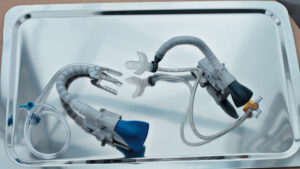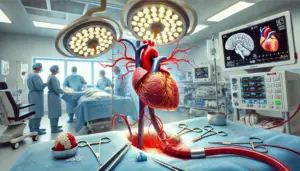Critical care medicine in the 21st century has witnessed remarkable advancements that have significantly improved patient outcomes in intensive care units (ICUs). This abstract provides a concise summary of the latest developments in critical care, highlighting key areas of innovation. Recent advancements in critical care include Precision Medicine: Tailoring treatments based on individual patient characteristics, genomics, and biomarkers to enhance the effectiveness of therapies. The objective is to describe the recent advancements in Critical Care Medicine. Telemedicine: The integration of telehealth technologies for remote patient monitoring and consultation, facilitating timely interventions. Artificial intelligence (AI): AI-driven tools for early disease detection, predictive analytics, and treatment optimization, enhancing clinical decision-making. Organ Support: Advanced life support systems, such as Extracorporeal Membrane Oxygenation and Continuous Renal Replacement Therapy provide better organ support. Infection Control: Innovative infection control measures to combat emerging pathogens and reduce healthcare-associated infections. Ventilation Strategies: Precision ventilation modes and lung-protective strategies to minimize ventilator-induced lung injury. Sepsis Management: Early recognition and aggressive management of sepsis with tailored interventions. Patient-Centered Care: A shift towards patient-centered care focusing on psychological and emotional well-being in addition to medical needs. We conducted a thorough literature search on PubMed, EMBASE, and Scopus using our tailored strategy, incorporating keywords such as critical care, telemedicine, and sepsis management. A total of 125 articles meeting our criteria were included for qualitative synthesis. To ensure reliability, we focused only on articles published in the English language within the last two decades, excluding animal studies, in vitro/molecular studies, and non-original data like editorials, letters, protocols, and conference abstracts. These advancements reflect a dynamic landscape in critical care medicine, where technology, research, and patient-centered approaches converge to improve the quality of care and save lives in ICUs. The future of critical care promises even more innovative solutions to meet the evolving challenges of modern medicine.
Keywords: Artificial intelligence; Critical care medicine; Infection control; Intensive care unit; Organ support; Patient-centered care; Precision medicine; Sepsis; Telemedicine.







